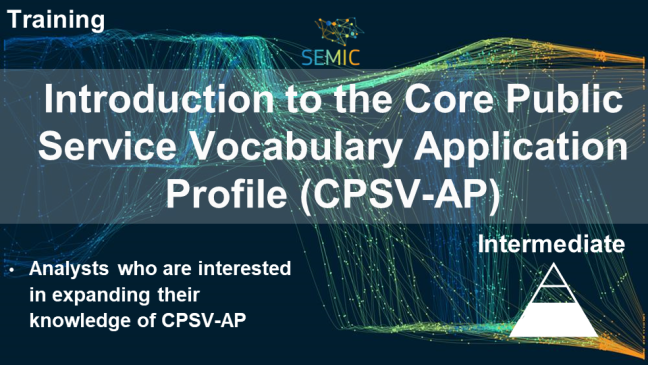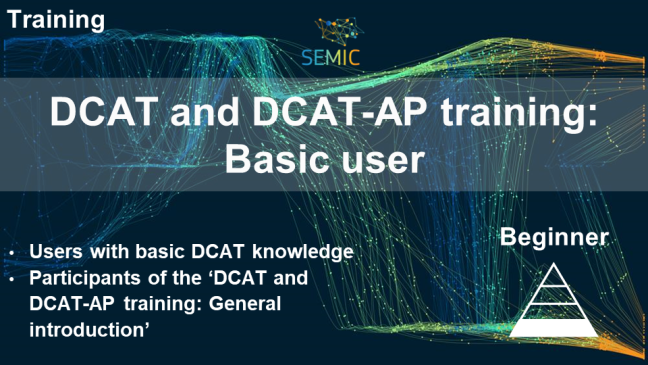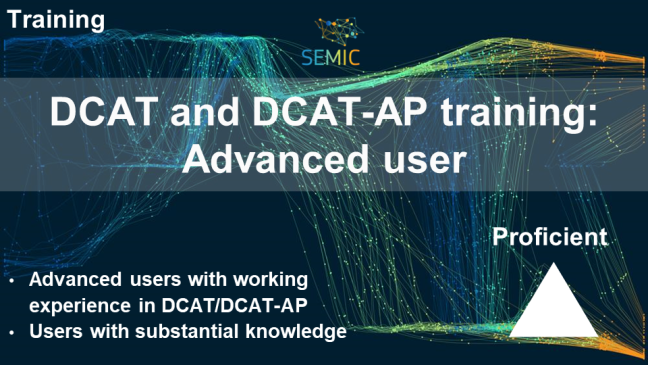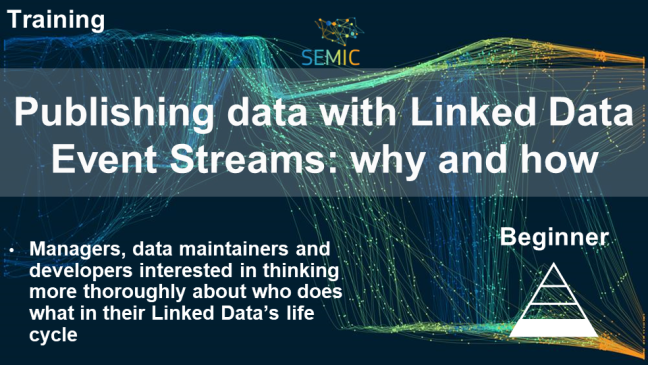
You will find below a list of all the trainings available so far regarding SEMIC topics as well as the latest events that have been hosted. This section also provides a selection of relevant publications including studies and reports on key IT and interoperability-related matters.
Studies and guiding materials
Throughout the years, SEMIC has published a large amount of reports, studies and guidelines on various topics. Find below all those publications, classified based on their type.
Find below a list of all reports and studies published on various key technological trends or semantic-related topics.
Find below a collection of publications on semantic interoperability and key technological trends, in the form of case studies and pilots.
Find below a list of publications on semantic interoperability and key technological trends, in the form of guidelines and solutions.
| Name | Publication date |
|---|---|
| Controlled vocabularies | January 2021 |
| Guidelines on how to build catalogues of public services at one-stop-shop portals and improve user experience | June 2018 |
| EIRA guidelines for the TOGAF interoperability ADM cycle | May 2018 |
| Data Quality Guidelines | No date |
Online trainings
If you want to discover more about SEMIC and become familiar with what we are doing, check out our selected list of trainings on various topics.
Many of the trainings below are hosted by the Interoperable Europe Academy in the EU Academy eLearning platform, an initiative of the European Commission. The Interoperability Academy aims at contributing to advanced digital skills of civil servants in the area of interoperability to support policy, service delivery and impact evaluation.
|
Learning objectives
|
|
|
Learning objectives
|
|
|
Learning objectives
|
|
Learning objectives
|
|
|
Learning objectives
|
|
|
Learning objectives
|
Webinars and awareness-raising sessions
Find below an overview of relevant webinars sorted by topics. If you click on the link, you will be redirected to a page where you can download the presentations used and find more information about the webinar.
Data Models
|
DCAT-AP identifiers webinar #2 |
DCAT-AP identifiers webinar #1 |
DCAT-AP webinar #2 |
|
DCAT-AP webinar #1 |
GeoDCAT-AP 2.0 Webinar |
SHACL shapes in DCAT-AP context |
|
CoS: Pilot on the SDG Search Service Model |
CoS: SDG Services Model - webinar #4 |
CoS: SDG Services Model - webinar #3 |
|
CoS: SDG Services Model - webinar #2 |
CoS: SDG Services Model - webinar #1 |
CoS: Tools and Technical support |
|
CoS: Annual Roadmap and Review of the CPSV-AP Specs |
|
Core Vocabularies revision |
Core Business & Core Public Organisation Vocabularies |
Core Person & Core Location Vocabularies revision |
|
Core Vocabularies 2.0.0 #2 |
Core Vocabularies 2.0.0 #1 |
CCCEV 2.0.0 #2 |
|
CCCEV 2.0.0 #1 |
|
Interoperability Test Bed webinar |
SHACL shapes in DCAT-AP context |
Data interoperability services
|
Knowledge sharing session on Natural Language Processing (NLP) for Public Services |
|
Workshop on the importance of semantics for the Tourism Data Space |
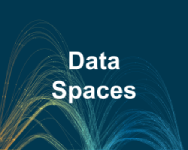
To know more about the support of SEMIC for data spaces, visit this page. |



